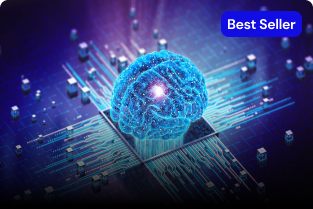Artificial Intelligence (AI) is no longer just a futuristic buzzword—it’s now a key driver of innovation across industries like healthcare, finance, marketing, transportation, and more. If you’re curious about how to develop an AI system from scratch, you’re not alone. Whether you’re a student, a developer, or simply an enthusiast, understanding what you need to build AI is the first big step.
Let’s break it down into the essential components and skills required.
1. Strong Foundation in Mathematics and Statistics
AI is built on math. Core concepts from linear algebra, probability, calculus, and statistics are critical, especially for understanding algorithms in machine learning and deep learning.
Key topics include:
-
Vectors and matrices
-
Probability distributions
-
Derivatives and gradients
-
Statistical modeling
2. Programming Knowledge
You must know how to code—Python is the most popular language in AI due to its simplicity and the vast number of AI libraries available.
Commonly used Python libraries:
-
NumPy & Pandas – data manipulation
-
Scikit-learn – classical machine learning
-
TensorFlow / PyTorch – deep learning
-
OpenCV – computer vision
-
NLTK / spaCy – natural language processing
3. Data: The Fuel for AI
No AI can function without data. You’ll need access to quality datasets to train your models. Depending on your AI’s purpose (e.g., predicting stock prices, identifying objects in images, translating languages), the kind of data you’ll use will vary.
Tips for working with data:
-
Use public datasets (like Kaggle, UCI ML Repository, Google Dataset Search)
-
Learn data cleaning and preprocessing
-
Understand data labeling for supervised learning
4. Understanding of Algorithms and Models
You should be familiar with how AI models work and when to use them. This includes:
-
Supervised vs. Unsupervised Learning
-
Classification & Regression Algorithms
-
Decision Trees, Neural Networks, SVMs, etc.
-
Reinforcement Learning for tasks like game AI or robotics
5. Computing Power
AI, especially deep learning, demands powerful hardware.
Options:
-
Your own machine with a good GPU (NVIDIA is preferred)
-
Cloud platforms like Google Colab, AWS, Azure, or IBM Watson
-
Local servers or edge devices for real-time AI solutions
6. Domain Knowledge (Optional but Powerful)
If you’re building AI for a specific field (healthcare, finance, education), having domain knowledge can help you design better models and solutions.
7. Tools & Frameworks
AI development is made easier with the right tools.
Popular tools:
-
Jupyter Notebook – easy prototyping and testing
-
Keras – high-level neural networks API
-
MLflow – model tracking and deployment
-
Docker – containerizing AI applications
-
Git – version control for projects
8. Soft Skills: Problem Solving & Curiosity
Finally, building AI is not just about writing code. It requires critical thinking, creativity, and patience. AI solutions are built through continuous learning, testing, and refining.
Final Thoughts
Developing artificial intelligence is like building a brain for a specific task. While it may seem intimidating at first, the tools and resources available today make it accessible to anyone willing to learn.
Start small, build projects, learn from mistakes—and soon, you’ll be developing your own AI that can recognize faces, predict outcomes, or even hold a conversation.

